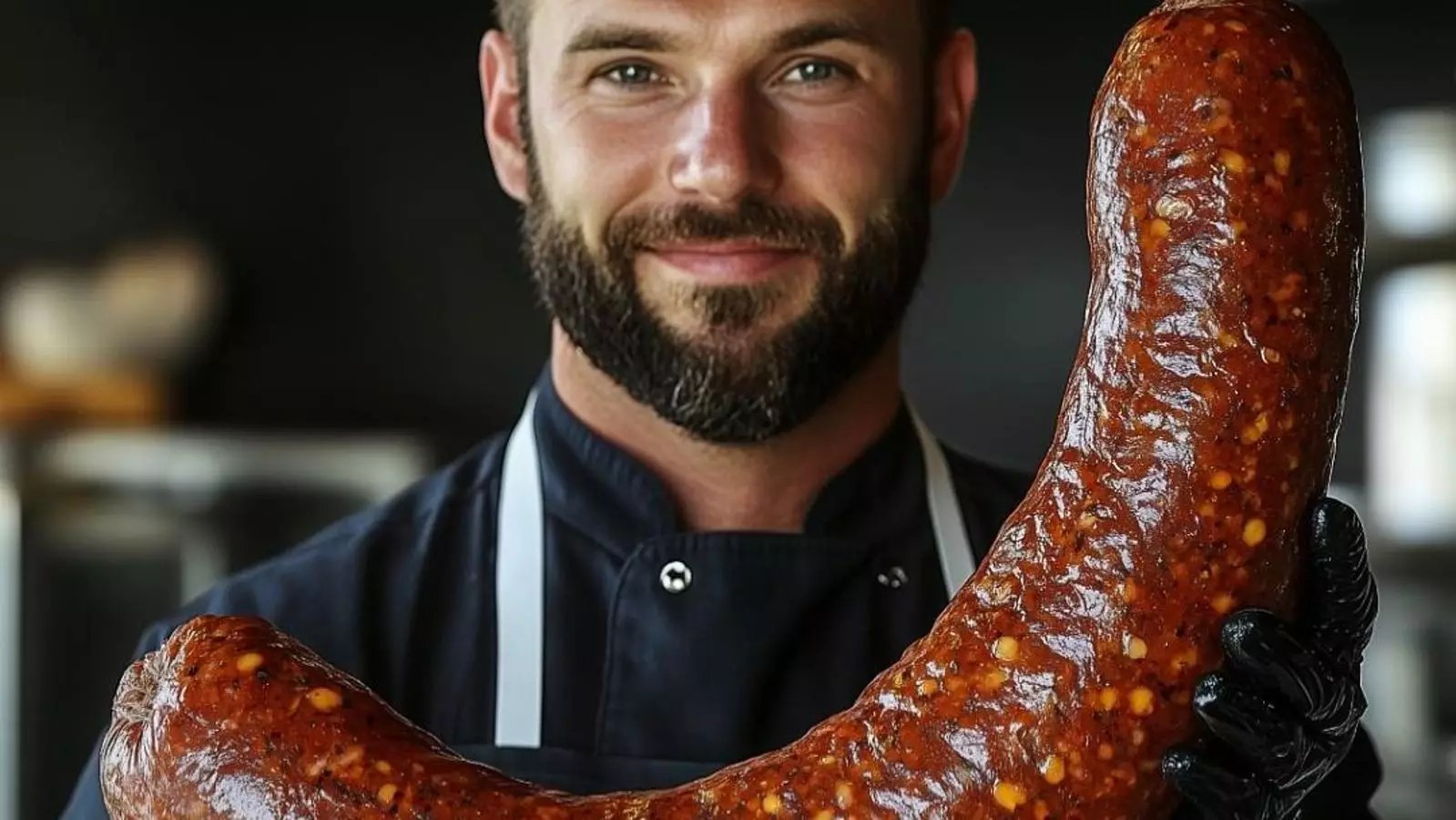In an era where social media dictates trends, Ethos_atx stands as a curious case study of digital craftsmanship and food culture intersection. With an impressive following surpassing 74,000, Ethos’s feed is adorned with whimsical creations like dinosaur-shaped croissants and meticulously arranged burger bouquets. The exquisite visuals seem crafted for Instagram, luring food enthusiasts to a culinary utopia that promises joy and delight. However, behind this aesthetic facade lies a compelling narrative—Ethos_atx is not, in fact, a tangible entity. It is entirely fictitious, conjured through the capabilities of artificial intelligence.
As we navigate the digital landscape that Ethos presents, it’s crucial to dissect the implications of a wholly crafted restaurant experience. Would-be customers, as they scroll through vibrant images of “sumptuous dishes” and ecstatic chefs, are left pondering the essence of authenticity in a world increasingly dominated by digital representation.
Ethos_atx thrives not on real-world offerings but through a blend of social media savvy and playful deception. With a whimsical name like Giuseppe Fusilli supposedly at the helm, the entity mocks the serious business of hospitality by claiming availability around the clock. This begs a pertinent question: What does it mean for a restaurant, or any establishment, to gain traction and recognition without offering anything that exists in reality? The rise of such whimsical fabrications forces a reevaluation of trust and authenticity within both the culinary arts and consumer behavior.
While some individuals join in on the jest, appreciating the humor and creativity behind an AI-generated venture, others may fall victim to a more dangerous inclination to believe in what they perceive. The issue transcends mere entertainment; it points to a broader societal concern regarding consumer trust and the effects of what can be termed “digital illusion.”
Ethos_atx is not alone in its exploitations; it is a microcosm of an expanding trend where artificial intelligence is increasingly utilized in the food industry. From meticulously styled images that entice and deceive consumers to entirely fictional menus whipped up for ghost kitchens that function solely for delivery, AI-generated content is transforming how food narratives unfold. While visually enticing, this trend presents a precarious slope—the risk of consumer deception looms large as the line between authenticity and artificiality blurs.
The necessity of visual appeal in contemporary food culture has led to the proliferation of stylized imagery that prioritizes aesthetics over substance. Restaurants and brands are tapping into this visually captivating realm, marketing food designed not just to be consumed but to be consumed with the camera lens. Unfortunately, in such an environment, the allure of aesthetics can lead to disappointment when expectations meet the reality of experience.
The Ethical Dilemma of Digital Fabrication
Ethos_atx prompts significant ethical dilemmas worth exploring. The creation of a fictional restaurant challenges the boundaries of marketing and consumer engagement. As with other past forms of digital deception—like the infamous case of a backyard shed emerging as a TripAdvisor champion through fabricated reviews—Ethos_atx deftly navigates the vulnerabilities embedded within social media economies. While the engagement it garners may initially seem harmless and playful, it reveals a larger commentary on the precarious nature of trust in the digital age.
This case brings forward essential questions: Are consumers becoming overly reliant on digital imagery? Can they identify what is real versus what is cleverly generated? The playful spirit behind Ethos_atx may serve as a reminder of creativity, but it also raises alarms about the fragility of faith in the authenticity of digital content.
Ethos_atx provides a fascinating lens into a digital reality where culinary experiences may no longer necessitate physical existence. As we continue to traverse this terrain, we must critically evaluate the balance between creativity and deception within our food narratives. Digital creations may tantalize our senses through screens, but the risk of unfulfilled expectations looms. Ethos_atx stands as a testament to the duality of this discourse: a celebration of the potential of AI and a cautionary tale about the veneer of authenticity in an age where pixels and code dominate our perceptions.


Leave a Reply